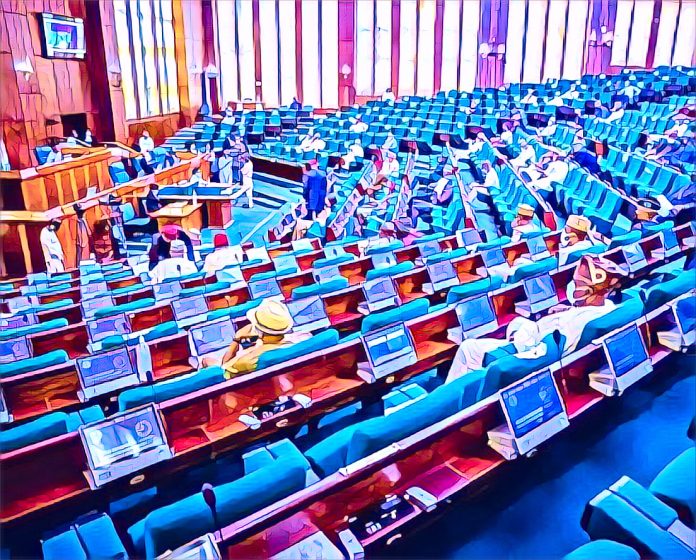The House of Representatives Special Committee on Oil Theft and Losses began investigating illegal crude oil lifting in Nigeria on Thursday. This probe aims to address the root causes of the sector’s challenges.
Chairman Alhassan Ado-Doguwa, representing Doguwa-Tudun Wada Federal Constituency, Kano State, led the committee. Speaker Tajudeen Abbas, the Chief of Defense Staff, and other top military officials were present. The committee will investigate oil theft and actions by criminal gangs, local communities, companies, and security agencies.
Abbas, represented by Deputy Speaker Benjamin Kalu, highlighted the negative impact of oil theft on Nigeria’s economy. “The statistics on crude oil theft are alarming,” he said. “From January to July 2024, Nigeria lost an average of 437,000 barrels of crude oil per day due to theft and vandalism. This translates to over $10 billion.”
He noted that reduced government revenue from oil theft affects national development and increases government borrowing. Other problems include environmental degradation, piracy, kidnapping, militancy, and company shutdowns.
Abbas identified corruption as a major obstacle to sustainable development in the oil sector. “We are determined to strengthen anti-corruption agencies to combat economic crimes in the oil and gas sector,” he assured.
Secretary to the Government of the Federation, George Akume, reiterated the Federal Government’s commitment to securing oil and gas infrastructure. Represented by Maurice Nnamdi, Akume stated, “Since 2020, over $1.5 billion has been spent to combat crude oil theft and secure our oil infrastructure.”
He added that funds have been used to enhance surveillance, secure pipelines, and increase law enforcement presence in oil-producing areas.
Ado-Doguwa pledged the committee’s dedication to uncovering the root causes of oil theft. “We will employ every legislative tool to bring those complicit to justice and develop sustainable solutions,” he said.
The committee’s methodology includes inviting memoranda and presentations from key stakeholders within the oil industry and security sector. They will also engage in discussions with international and local oil companies, community leaders, and relevant agencies.
Ado-Doguwa highlighted several challenges, including vessels transporting stolen crude oil undetected and collaboration among government and security agencies in illicit activities. He noted inefficiencies in current measures to combat oil theft and inadequate firepower compared to the number of security operatives.
He revealed that the NNPC Ltd. reported 900 infractions on its pipelines, and delayed judicial processes have resulted in the abandonment of cases. This allows culprits to return to their criminal activities.
The committee plans to enact legislation, including budget allocations to support security agencies and improve existing laws to combat crude oil theft. They will also collaborate with security agencies to protect national assets and critical infrastructure.
Involving Indigenous youths in ownership initiatives and converting seized refineries for legitimate use are also priorities. “We emphasize the importance of involving Indigenous youths in ownership initiatives,” Ado-Doguwa said.
Immediate past Deputy Speaker Idris Wase warned Ado-Doguwa about the dangers of his task. “Oil thieves will come after you, but God will shield you,” Wase said, urging caution.
This investigation comes at a critical time for Nigeria, which faces significant economic challenges due to oil theft. The committee’s work aims to uncover the root causes of these losses and develop effective strategies to combat them. The success of this probe will be vital for Nigeria’s economic stability and development.



